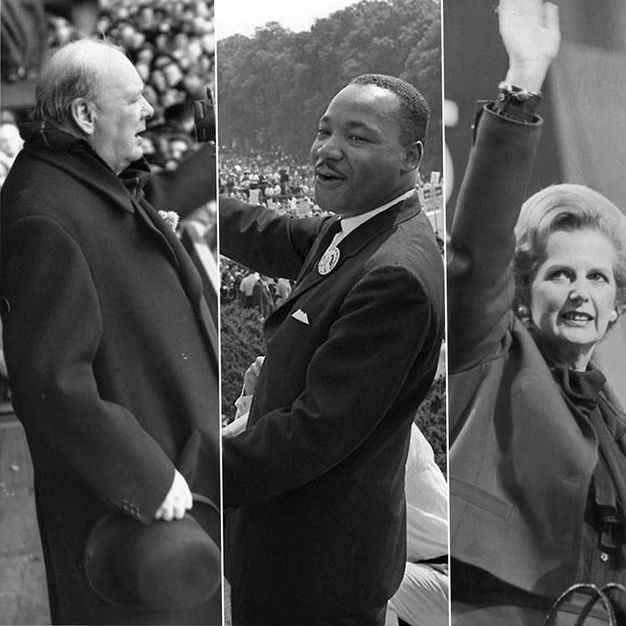
Historic Voices Podcast: Global History and Culture
David Arendale
Historic Voices Podcast brings voices from the past that make history come alive through their personal accounts and public speeches. Some episodes bring the voices of political and military leaders, common citizens who lived during extraordinary times, and entertainers who helped Americans live through difficult events. The podcast host provides a short introduction and afterward shares historical context. This podcast is part of the LifePodcast Network composed of other family-friendly podcasts that bring a positive message of hope and inspiration. Check out the LifePodcast Network, http://lifepodcast.net.
- (Bonus) Cuban Missile Crisis - Wikipedia
(Bonus) The Cuban Missile Crisis, also known as the October Crisis in Cuba, or the Caribbean Crisis, was a 13-day confrontation between the governments of the United States and the Soviet Union, when American deployments of nuclear missiles in Italy and Turkey were matched by Soviet deployments of nuclear missiles in Cuba. The crisis lasted from 16 to 28 October 1962. The confrontation is widely considered the closest the Cold War came to escalating into full-scale nuclear war
26 March 2024, 4:36 pm - (Bonus) Andrea Gromyko - Wikipedia
(Bonus) Andrei Gromyko (18 July 1909 – 2 July 1989) was a Soviet politician and diplomat during the Cold War. He served as Minister of Foreign Affairs (1957–1985) and as Chairman of the Presidium of the Supreme Soviet (1985–1988). Gromyko was responsible for many top decisions on Soviet foreign policy until he retired in 1988. In the 1940s Western pundits called him Mr Nyet ("Mr No") or "Grim Grom", because of his frequent use of the Soviet veto in the United Nations Security Council.
26 March 2024, 4:33 pm - (Bonus) Adlai Stevenson Biography - Wikipedia
(Bonus) Adlai Ewing Stevenson II ( February 5, 1900 – July 14, 1965) was an American politician and diplomat who was the United States Ambassador to the United Nations from 1961 until his death in 1965. He previously served as the 31st governor of Illinois from 1949 to 1953 and was the Democratic nominee for president of the United States in 1952 and 1956, losing both elections to Dwight D. Eisenhower in a landslide. Stevenson was the grandson of Adlai Stevenson I, the 23rd vice president of the United States.
26 March 2024, 4:28 pm - 6 minutes 34 secondsAdalai Stevenson - Cuban Missile Crisis - 1962
S05-E-04 We feature Adlai Stevenson, who was the U.S. representative to the United Nations, and a brief speech to his Soviet counterpart concerning the Cuban Missile Crisis.
26 March 2024, 4:24 pm - "Rear Window" Movie - Wikipedia
Rear Window is a 1954 American mystery thriller film directed by Alfred Hitchcock and written by John Michael Hayes based on Cornell Woolrich's 1942 short story "It Had to Be Murder". Originally released by Paramount Pictures, the film stars James Stewart, Grace Kelly, Wendell Corey, Thelma Ritter, and Raymond Burr. It was screened at the 1954 Venice Film Festival.
Rear Window is considered by many filmgoers, critics, and scholars to be one of Hitchcock's best,[4] as well as one of the greatest films ever made. It received four Academy Award nominations, and was ranked number 42 on AFI's 100 Years...100 Movies list and number 48 on the 10th- anniversary edition, and in 1997 was added to the United States National Film Registry in the Library of Congress as being "culturally,
historically, or aesthetically significant.
18 March 2024, 7:30 am - The Six Shooter Radio Show - Wikipedia
The Six Shooter is a United States Western old-time radio program starring James Stewart as a gunfighter. It was created by Frank Burt, who also wrote many of the episodes, and lasted only one season of 39 episodes on NBC (Sept. 20, 1953–June 24, 1954). Initially, it was broadcast on Sundays at 9:30 pm Eastern Time, through October 11. Then it was heard at 8:30 pm for three weeks. Finally, on November 8, 1953, through March 21, 1954, it was broadcast Sundays at 8 pm; beginning April 1, 1954, through the final episode, it was on Thursdays at 8:30 pm.[1] One old-time radio directory called the program "a last, desperate effort by a radio network (NBC) to maintain interest in adventure drama by employing a major Hollywood movie star in the leading role."
18 March 2024, 7:00 am - Jimmy Stewart Biography - Wikipedia
James Maitland Stewart (May 20, 1908 – July 2, 1997) was an American actor and military officer. Known for his distinctive drawl and everyman screen persona, Stewart's film career spanned 80 films from 1935 to 1991. With the strong morality, which he portrayed both on and off the screen, he epitomized the "American ideal" in the mid-twentieth century. In 1999, the American Film Institute (AFI) ranked him third on its list of the greatest
American male actors.[1] He received numerous honors including the AFI Life Achievement Award in 1980, the Kennedy Center Honor in 1983, as well as the Academy Honorary Award and Presidential Medal of Freedom, both in 1985.
18 March 2024, 6:30 am - 31 minutes 22 secondsJimmy Stewart in the Six Shooter - Nov 15, 1953
S05-E03 We feature Mr. Jimmy Stewart staring in an episode of the radio drama, The Six Shooter. Mr. Jimmy Stewart is an iconic American actor who had a prolific career in radio, theater, major motion pictures, and long service to his country in the Air Force. The selection for this episode is from his western radio drama, The Six Shooter. It was common for Hollywood actors to take work in radio inbetween their major film roles. This is an example of this role.
18 March 2024, 6:00 am - "White Christmas" movie - Wikipedia
White Christmas is a 1954 American musical film directed by Michael Curtiz and starring Bing Crosby, Danny Kaye, Rosemary Clooney, and Vera-Ellen. Filmed in Technicolor, it features the songs of Irving Berlin, including a new version of the title song, "White Christmas", introduced by Crosby in the 1942 film Holiday Inn.
Produced and distributed by Paramount Pictures, the film is notable for being the first to be released in VistaVision, a widescreen process developed by Paramount that entailed using twice the surface area of standard 35mm film; this large-area negative was also used to yield finer-grained standard-sized 35mm prints.
16 March 2024, 12:28 am - The Danny Kaye Show - Wikipedia
The Danny Kaye Show is an American variety show, hosted by the stage and screen star Danny Kaye, which aired on Wednesday nights from September 25, 1963, to June 7,
1967, on the CBS television network.[1] Directed by Robert Scheerer, it premiered in black-and-white. It switched to color broadcasts in the fall of 1965. At the time, Kaye was at the height of his popularity. He starred in a string of successful 1940s and 1950s musical comedy features, made numerous personal appearances at venues such as the London Palladium, and his rare selective visits to the small screen were considered major events. With his recent motion pictures considered disappointments, three triumphant early 1960s television specials led the way to this series. Prior to his film and television career, Kaye had made a name for himself with his own radio show, also titled The Danny Kaye Show. He made numerous guest appearances on other comedy and variety radio shows and headlined in several major Broadway musical revues throughout the 1940s.
16 March 2024, 12:25 am - The Danny Kaye Show - Wikipedia
The Danny Kaye Show is an American variety show, hosted by the stage and screen star Danny Kaye, which aired on Wednesday nights from September 25, 1963, to June 7,
1967, on the CBS television network.[1] Directed by Robert Scheerer, it premiered in black-and-white. It switched to color broadcasts in the fall of 1965. At the time, Kaye was at the height of his popularity. He starred in a string of successful 1940s and 1950s musical comedy features, made numerous personal appearances at venues such as the London Palladium, and his rare selective visits to the small screen were considered major events. With his recent motion pictures considered disappointments, three triumphant early 1960s television specials led the way to this series. Prior to his film and television career, Kaye had made a name for himself with his own radio show, also titled The Danny Kaye Show. He made numerous guest appearances on other comedy and variety radio shows and headlined in several major Broadway musical revues throughout the 1940s.
16 March 2024, 12:24 am - More Episodes? Get the App
Your feedback is valuable to us. Should you encounter any bugs, glitches, lack of functionality or other problems, please email us on [email protected] or join Moon.FM Telegram Group where you can talk directly to the dev team who are happy to answer any queries.
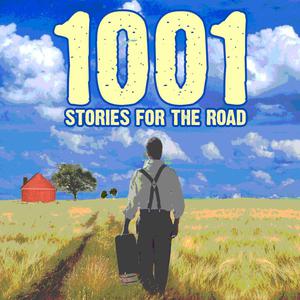 1001 Stories For The Road
1001 Stories For The Road
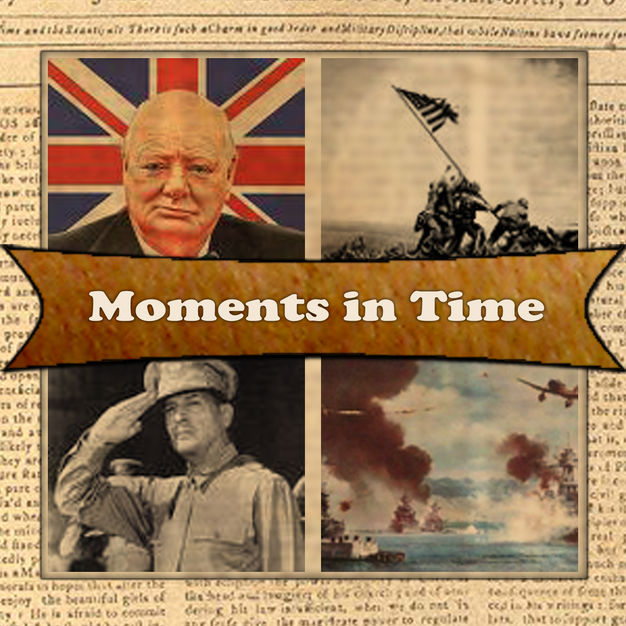 Moments In Time
Moments In Time
 Life Passion and Business
Life Passion and Business
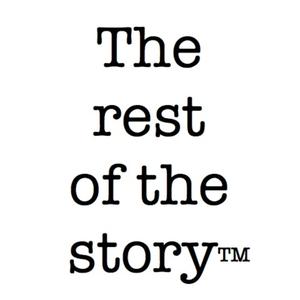 The Rest of the Story™ Podcast
The Rest of the Story™ Podcast
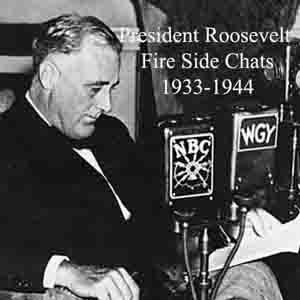 FDR Fireside Chats and Speeches
FDR Fireside Chats and Speeches